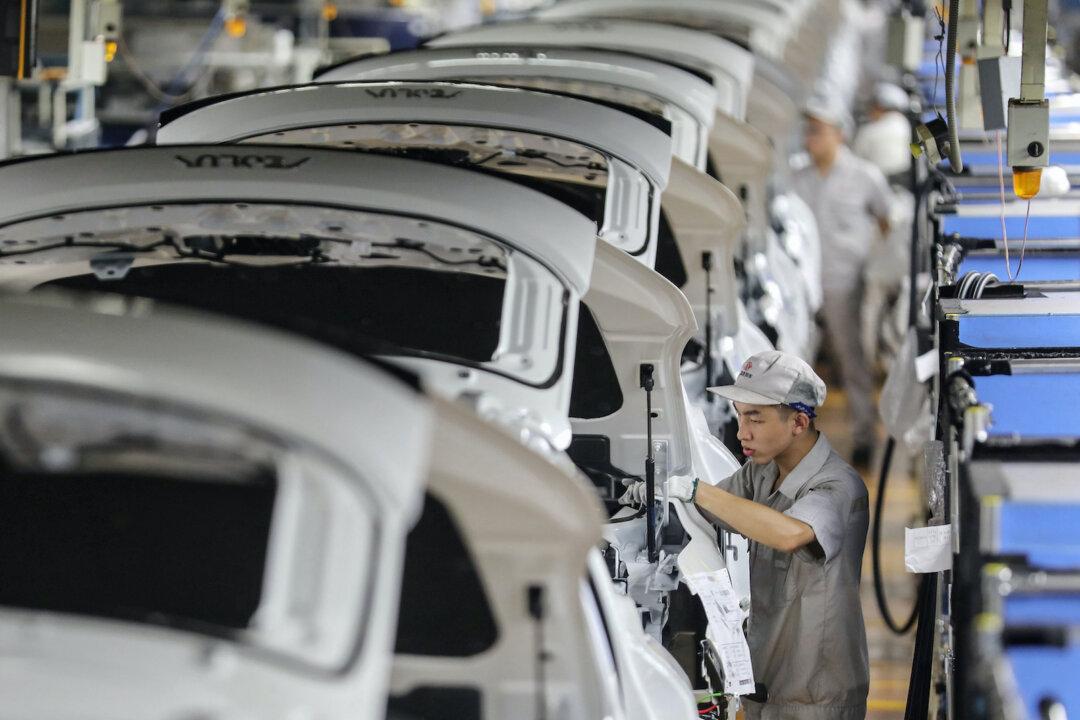Commentary
China’s self-driving vehicles, which we might as well call “robocars,” have driven 1.8 million miles in California since 2017 and also are approved for testing in Texas and Arizona, according to new research published by Fortune Magazine.
The cars can have cameras, mics, GPS, lidar lasers, radar, and artificial intelligence sensors to navigate and record, including road terrain and driving conditions, for self-driving applications such as robotaxis. But who knows what other sensors they have, what they record, and who has access? And who knows how emerging technologies might be dual-use for military and intelligence purposes?
The data are most likely sent to China, which violates the privacy rights of Americans. If it wanted, the Chinese Communist Party (CCP) would have full access to the data—according to Chinese law—including, for example, Wi-Fi passwords, facial recognition, and license-plate tracking of dissidents who fled China. What makes robocars particularly risky from an espionage perspective is that they can be directed to drive almost anywhere to spy, record, and steal data, including near U.S. military bases or corporations that have proprietary information.
Chinese nationals employed in the U.S. robocar business, including three former employees at Apple, already have been charged with allegedly stealing proprietary self-driving data. One was convicted but was sentenced to just four months. That won’t deter thieves from stealing data worth billions of dollars. It allows Chinese companies to leap over our companies while using U.S. technologies and data as a springboard. China’s electric car companies have taken self-driving technologies first developed in Silicon Valley back to China and expanded on them immeasurably.
Another major issue is reciprocity. We freely hand Chinese robocar companies detailed road data, high-resolution maps, and access to the United States for testing. In contrast, no reciprocal data, maps, and access are granted to U.S. car companies in China. This gives Chinese car companies an edge over the United States in a growth market. It makes it all but impossible for U.S. self-driving cars to compete in China.
Tesla is the only car company that comes close, and it’s even being discriminated against for not having direct access to the necessary data and the ability to take the information outside China for development purposes. The result is that Chinese companies, such as Baidu’s self-driving unit, have up to a three-to-five-year lead on Tesla on Baidu’s home turf in China—the world’s biggest future market for self-driving cars.
Far more robocars are already being tested in China than in the United States. By 2030, according to the China Society of Automotive Engineers, 20 percent of new cars sold in China will be driverless. Another 70 percent will use advanced assisted driving technology. That leaves just 10 percent of new cars in China in 2030 that are solely human-driven.
As this should make clear, the U.S. government hasn’t done much to mitigate the risks of having Chinese-national engineers and Chinese robocar companies operating in the United States.
Four members of the U.S. House of Representatives who have taken notice are Reps. Tim Walberg (R-Mich.), Debbie Dingell (D-Mich.), Bob Latta (R-Ohio), and Marc Veasy (D-Texas). On July 18, 2023, they issued a statement and letter to Department of Transportation Secretary Pete Buttigieg and Department of Commerce Secretary Gina Raimondo, flagging the risks of giving China’s robocars a blank check.
“China is already filling the void to set global standards, establish supply chains, and deploy the technology on its own,” the representatives wrote. “The massive amount of data being collected by these cars could give the CCP an unprecedented vantage point into the United States. Beijing has already pioneered the use of big-data analytics to identify dissidents at home, and we are concerned that those tactics could be deployed here and abroad.”
Since the House letter, CNBC and Nikkei Asia Review have covered China’s robocar testing in the United States. Yet, for a year, the U.S. government hasn’t taken significant action to protect Americans and our companies.
In May, Ms. Raimondo at least said that regulations could be imposed as soon as this fall on networked cars in the United States that send data to China. But this is too little, too late. The CCP is giving us a run for our money like no other adversary in history.





